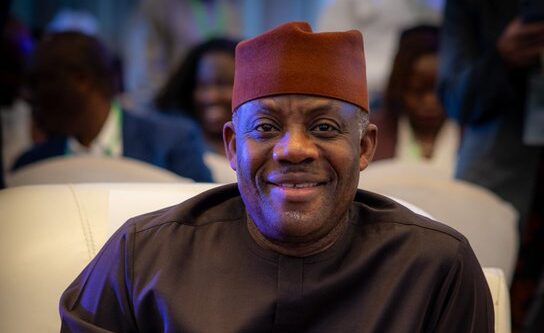By Peter Omopo
Abuja | July 19, 2025 – The Federal Ministry of Education has officially pegged the minimum age for admission into Junior Secondary School 1 (JSS1) at 12 years, as part of a newly launched policy document on Non-State Schools across Nigeria.
The policy, introduced last week, standardizes the age of school entry in line with the 2013 edition of the National Policy on Education. It mandates that children must complete six years of primary education before transitioning to junior secondary school — ideally at age 12.
According to the document, nursery education shall span three years: admission into Nursery 1 at age 3, Nursery 2 at age 4, and a compulsory year of pre-primary (Kindergarten) at age 5. Primary education will begin at age 6 and last six years, culminating in eligibility for JSS1 at approximately age 12.
“Basic education shall be of nine years’ duration — six years of primary and three years of junior secondary education. Children shall be admitted into Primary One when they attain the age of six years,” the ministry noted. “They shall be admitted into Junior Secondary School (JSS1) when they have completed six years of primary education, at around the age of twelve.”
If implemented strictly, the policy implies that Nigerian learners would not qualify for university admission before the age of 18 — a move that could bring stability to the academic progression system but also stir debate among stakeholders.
This policy comes amid ongoing discussions over the appropriate age for tertiary education entry. Former Minister of Education, Prof. Tahir Mamman, previously set the university entry age at 18, a decision later reversed by his successor, Dr. Tunji Alausa, who reinstated 16 years as the acceptable minimum.
The newly released Nigeria Education Digest 2022, cited in the policy document, highlights the growing influence of non-state (private) schools in Nigeria’s education sector. Non-state schools now outnumber public schools at the junior secondary level in 26 states, while public primary schools remain dominant in 19 states.
Between 2017 and 2022, private schools saw significant growth. Non-state primary schools increased by 31.56%, while government-run primary schools grew by only 3.3%. At the junior secondary level, the number of private schools surged by 35.06%, compared to 6.8% growth in public junior secondary institutions.
Funded largely by tuition fees and donations from individuals, religious bodies, foundations, and businesses, non-state schools have become central to Nigeria’s educational landscape — despite varying standards in teaching and infrastructure.
The ministry said the new policy aims to harmonize entry ages, raise educational standards, and ensure age-appropriate cognitive and emotional development for learners across the country.

